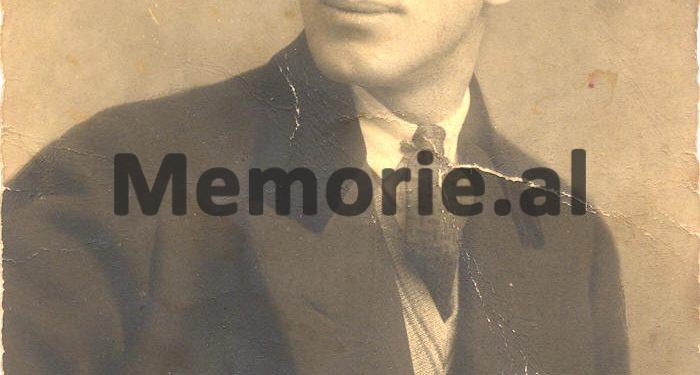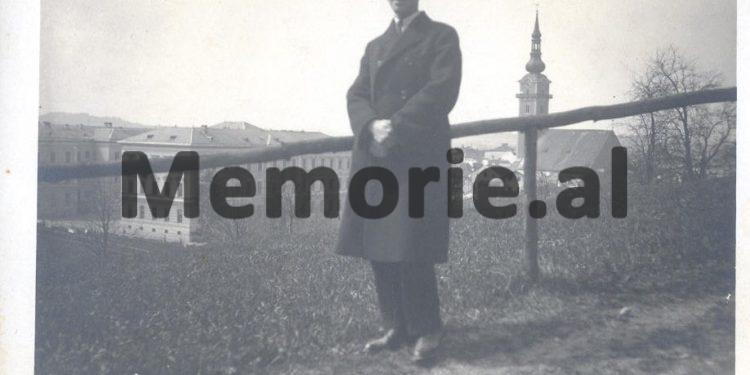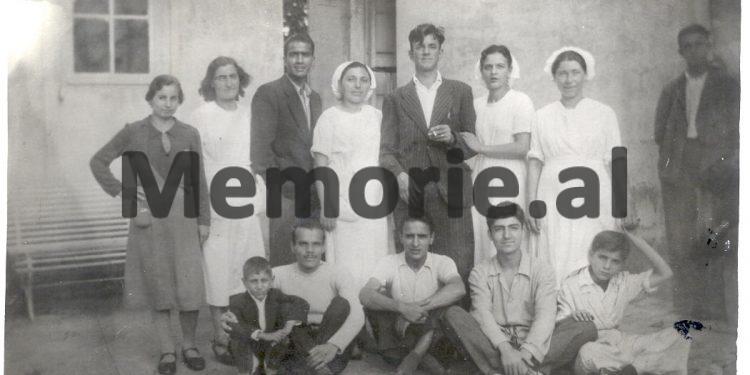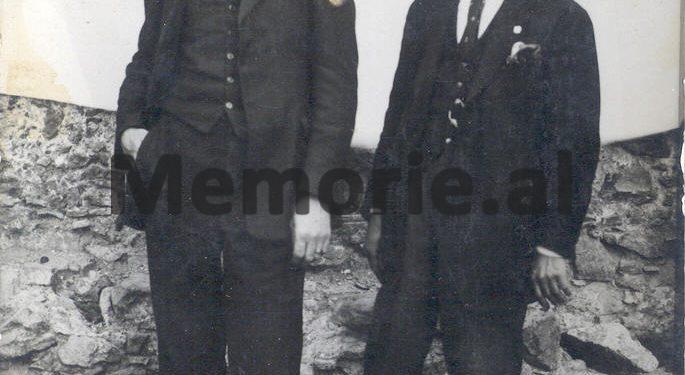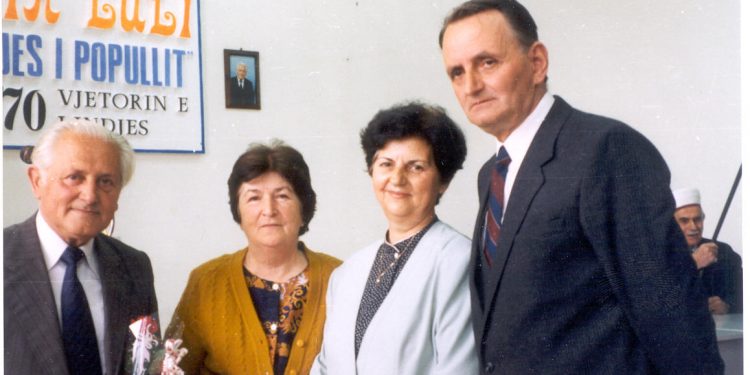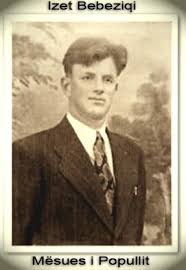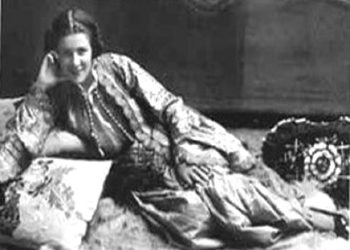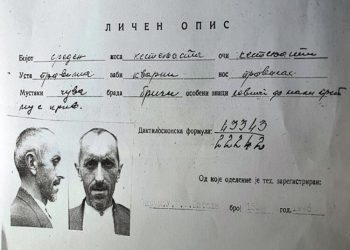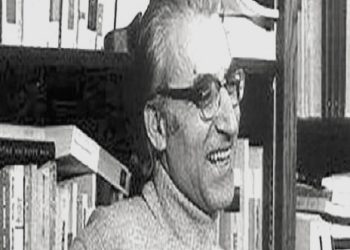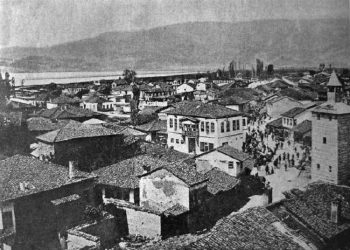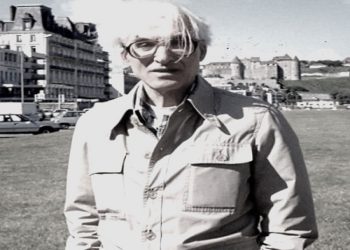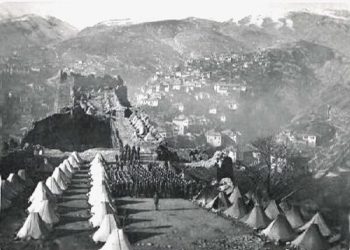Dashnor Kaloçi
Memorie.al Perhaps the forgotten determinant is not right because Izet Bebeziqi has become immortal with his work, with his valuable contribution in many areas of life, with his numerous publications and studies in the press of the time, with his work as teacher and educator, with his personality since the period when he worked was imposed on even the most respected men of culture and politics.
The environment where he grew up and was educated
Izet Bebeziqi was born in Shkodra on 11.10.1905 in a respected family of emigrants from the Albanian lands of Podgorica closely connected with the most prominent families of Shkodra and best adapted to the level and requirements of this center of economic and cultural importance. The family environment gave him the pride and personal dignity to remain manly even in the most difficult conditions and to face the challenges of life. And these were very serious. But he never lowered his head and stood proud in his dignity. This is clear in the communist prisons, when he replied with his forehead raised to Mehmet Shehu, the iron prime minister who wanted to subdue him: “I am very well, I do not ask anything from you”. From this environment he inherited inexhaustible energies, a type of very stable and challenging nervous system. His father, interested in his son’s education, sent Izet to study in Austria when he was 13 years old (1918-1934, where he completed the classical high school and attended higher education). There, in that elevated cultural and scientific environment, the boy receives the proper training and preparation, taking what is most valuable to serve his beloved homeland. It is not unimportant that Izet Bebeziqi, although 16 years old, creates the first library on the stamp of which he writes: “Illyria-Bebeziqi Library, Shkodër-1.XI.1921”. As a student he is known in the original for his masterpieces of literature and philosophy in German, English, Italian, Latin, Spanish, French, Russian, Serbo-Croatian, Old and New Greek and Turkish. So he knew and studied in 11 old and new eastern and new languages. All this left deep traces in his soul, always rebellious against injustices, so much so that he became the perfect example of a passionate scholar, a prominent erudite, a journalist with a rare name in the world of Albanian letters in foreign bodies and of the country. He is acquainted with the progressive districts and dreams of a democratic future for his country. Consequently, he is against the monarchical regime, even in the assassination attempt on Ahmet Zogu in Vienna, he is accused of being politically implicated, he is punished in absentia, his scholarship is cut, he interrupts his studies.
Journalist, translator, researcher, teacher
Left without income abroad he is forced to survive working in the field of letters as a journalist and researcher. Since his school years he wrote in German and Austrian newspapers, published in Italian newspapers and especially in the new Albania of Constanta in Romania, mainly under the pseudonym Bartholotus. Encouraged by Jokli, he studies the Arbëresh settlements in Italy, transliterates De Rada, studies Santorini, Seremben, Crispi and other revered Arbëresh, collects folk songs in many regions of the country, traces with the care of a scholar everything related to national traditions and history, collaborates in many Albanian bodies, such as: “Islamic Culture”, “Nation”, “Spirit”, “Word of Korca”, “Literary Magazine”, etc. The scope of I. Bebeziq’s studies covers a long period of time, from the mid-20s to 1944, despite its peculiarities, it remains on a main theme: patriotism-Albanianism. Within this framework he is a philosopher, writer, critic, historian and sociologist. He studied on the basis of an extensive literature, but always remaining original and convincing in the problems he posed. He is known as one of the most prominent journalists in the foreign and local press so much so that he becomes “Among the strongest critical pens” as Petrota would describe it in the study “Popolo, Lingua and Albanian Literature” in 1932, when Izet Bebeziqi was alone 27 years old. Bebeziqi translates into Albanian from German, Italian, Turkish and many other languages. He is known for his erudition and expressive ability in the Albanian language of the most advanced European literary and philosophical thought.
Return to homeland in 1934
Izet Bebeziqi returned home in 1934, after the amnesty of the government of Ahmet Zogu. In 1934-1936 he was a professor at the Technical University of Tirana, then at the Commercial School of Vlora, at the Gymnasium of Korça. In Vlora he waits with arms in hand for the fascist occupation of April 7, this professor comes to Tirana and becomes the main figure in the anti-fascist manifestation that is organized in the grave of Naim Frashëri, in Korça in front of his students, he tears the fascist flag. As you can see, I am not dwelling on the pedagogical skills of this talented Professor, of this outstanding analyst of Albanian and foreign literature. In those dark times for our country, his rebellious spirit against social injustices, against the enemies of Albanianness, is revealed in the clearest way.
Imprisoned and persecuted by the communist regime
Izet Bebeziqi is one of the few intellectuals who was convicted and persecuted by all regimes in Albania. He was politically convicted by the Zog Government, arrested and deported indefinitely by the Italians in 1940 on the island of Ventotene, along with many other compatriots. There in those dark prisons he meets and befriends Sandro Pertini, the future President of Italy. An expression of this friendship is the constant care of this personality of Italian politics towards his friend Bebeziqi. When he returned from exile in 1943, he went to Peja and was appointed director of the gymnasium. There he fights for a free Kosovo united with Albania. He is imprisoned by the Germans and thanks to his friendly connections with Xhevat Dani, he manages to escape from the dungeons of the Shkodra prison and hides with his friends in Tirana. It was the Tirana people who hid their honored professor from the extrajudicial shootings of the communists, such as those of the “Continental” hotel and elsewhere.
In 1945 Izet Bebeziqi settled in Durrës. The new communist regime did not give this honorable professor a job. His friend and close colleague, Skender Luarasi, helped him open a school supplies store and sell books. This became the center of meetings and conversations of Durrës intellectuals and Kosovars who escaped the Bar massacre and Slavic persecutions. Security watched him and followed him into the shadows. The cup was filled with the elections of December 2, when Izet openly stated that: “Participation in voting is not mandatory.” Arrested on charges of “Knowing the formation of a socialist group”. During the defense, Izeti demonstrated his legal skills by nailing the trial panel and managed to turn the trial into an indictment for human rights violations. He was sentenced to 7 years in political prison and confiscation of property. He was permanently banned from teaching and publishing. After many attempts, when he was released from prison, he was appointed librarian in Shkodra where he only distributed books. Nevertheless, with his skills as a close friend of the book and his deep acquaintance, he quickly approached the students who would find in Izeti the tireless helper and guide in the world of culture and science. There are hundreds and thousands of students who attended the state library and sought the help of a competent person like Izet Bebeziqi in the field of drafting diplomas, course assignments, literary lectures or book research. Now Izet, charged with a very ordinary job for his intellectual abilities, finds space to give the maximum of his contribution. Being familiar with many foreign languages, he begins to give introductory lessons in some of them. And of course the most heartfelt was the teaching of the German language. Of course, this fact is just a simple proof to show the cultural baggage of this outstanding intellectual whose activity was violently interrupted when he was at the best age of maturity and creativity.
Izet Bebezic’s collaborators and friends
As a student he met Joklin from whom he received inspiration and encouragement to work in the field of scientific, linguistic and literary research. From Shkodra, Tirana, Vlora, Durrës, Korça, from the Albanian settlements in Italy and Greece, from Kosovo where he lived and worked unanimously, everyone would call him with the honorary title “Professor Bebeziqi”. This is what his close friend, the poet of the Nation Lasgushi, wrote to him, this is what his study friend, Çabej, his work colleague, Skender Luarasi and even the well-known President of Italy, Sandro Bertini, called him. He had friends and collaborators with Safet Butka, Prek Kaçinar, Arshi and Myzafer Pipë, Beqir Çela, Hafiz Ali Korçë, Vinçens Prenushi, Stefan Kaçulin, Sulejman Kadiu, Skender Çela, Ibrahim Gjakovn, Riza Danin, Xhevat Danin, Muhamet Shurd , Fadil Podgorica, Luigj Franën and many, many others.
Bebezic’s name and work were kept silent
Izet Bebezic’s activity is little known today. His creative work remained in the pages of newspapers and magazines of the time, which today are very difficult to find. His philosophical, historical, literary and scientific thought was forgotten and remained the property of the archives. For 50 years no one remembered him. Only in `94 did his name come to light.
Well-known journalist, Besnik Dizdari writes the article “Why is Izet Bebeziqi great?”, The tireless scholar Fadil Podgorica writes in Shkodra “A friend of Sandro Bertini”, Danish Izet Bebeziqi (son) writes in Rilindja , Albanianism “. From a sketch of Bebezic’s life we will find it in Hamdi Bushati as well as in the work of Prof. Dr. Uran Asllanit. The people maintain a deep respect for the Professor, so in 1994 he was given the high title “Teacher of the People” with this motivation: “Devout and passionate teacher. He has made outstanding contributions in the field of literary criticism, translation and journalism. He worked with a high conscience in the schools of Albania and Kosovo “./Memorie.al




